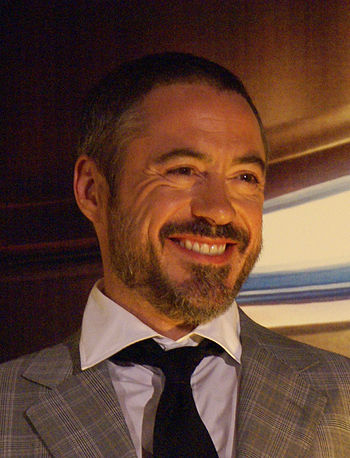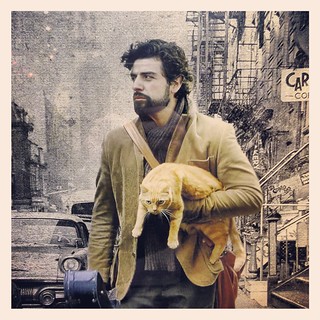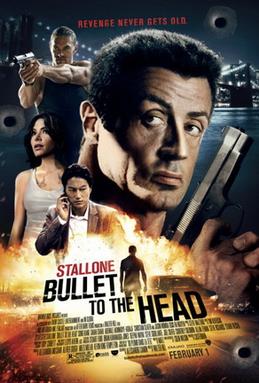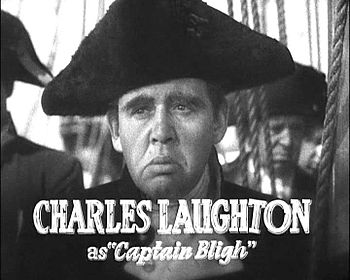by Dean | Oct 19, 2014 | Movies
 I don’t know much about defense attorneys, but I don’t completely buy the depiction of them, or of one of the prosecutors (David Krumholtz), in David Dobkin’s new film, The Judge (2014). There’s something utterly specious here. Still, although this legal drama is not terribly good, it isn’t terribly bad—or even plain bad—either. It has Robert Downey Jr., Robert Duvall (as convincing as ever), Vincent D’Onofrio (full of depth), and Billy Bob Thornton. Critic David Edelstein is right about its “picturesque” outdoor shots. It has a story of very limited strength, but at least some strength is there.
I don’t know much about defense attorneys, but I don’t completely buy the depiction of them, or of one of the prosecutors (David Krumholtz), in David Dobkin’s new film, The Judge (2014). There’s something utterly specious here. Still, although this legal drama is not terribly good, it isn’t terribly bad—or even plain bad—either. It has Robert Downey Jr., Robert Duvall (as convincing as ever), Vincent D’Onofrio (full of depth), and Billy Bob Thornton. Critic David Edelstein is right about its “picturesque” outdoor shots. It has a story of very limited strength, but at least some strength is there.
That said, allow me to comment also that I like old movies (significantly old) because they were prohibited from showing the kind of gross vomiting and diarrheal excreting that The Judge gives us. Ugh!

English: Actor Robert Downey Jr. promoting the film “Iron Man” in Mexico City (Photo credit: Wikipedia)
by Dean | Jun 15, 2014 | Movies
 That critics would fervently praise a mediocre film like James Gray’s The Immigrant (2014) points up that movie criticism is still in the same dismal state it has always been in. No, it’s in a worse state, for, after all, we used to have the fine criticism of John Simon, Stanley Kauffmann, Charles Thomas Samuels, Dwight MacDonald, Vernon Young and—well—Pauline Kael. No more.
That critics would fervently praise a mediocre film like James Gray’s The Immigrant (2014) points up that movie criticism is still in the same dismal state it has always been in. No, it’s in a worse state, for, after all, we used to have the fine criticism of John Simon, Stanley Kauffmann, Charles Thomas Samuels, Dwight MacDonald, Vernon Young and—well—Pauline Kael. No more.
Re The Immigrant, it’s an unpersuasive period piece which I refused to watch to the end. No one is paying me to view these films; the expense is mine.
by Dean | Apr 22, 2014 | General, Movies

Llewyn and Ulysses (Photo credit: vapour trail)
It is a little hard to see the girl played by Carey Mulligan in Inside Llewyn Davis (2013) as a slut, as she presumably is, but easy to believe she herself has a point in considering Llewyn Davis (Oscar Isaac) a “loser.” A merchant mariner struggling to become a professional folk singer in 1961, Llewyn has very little money, is possibly the father of Mulligan’s soon-to-be-aborted child, constantly lets other people down and is in turn let down by other people, and even receives an absurd beating by a mysterious stranger.
Joel and Ethan Coen’s film is a black comedy—too black. Undeniably amusing, it is also rather specious. As is well known by many, to deny the light is as much a lie as to deny the dark, and here the Coens deny the light. All they care to offer us is pessimism and (usually so-so) music, which makes for an undistinguished film—or would if it weren’t for the reasonably well-written script. For the Coens have penned an integrated story less contrived than that of their No Country for Old Men. Good going, guys, but . . .
it sure isn’t perfect.
Other assets are here, too, and in truth Inside Llewyn Davis is a modest success.
by Dean | Apr 13, 2014 | General, Movies

Standing Proud |Captain America: The Winter Soldier Review (Photo credit: BagoGames)
The noise made over drones and the NSA may well be fatuous,* but Captain America: The Winter Soldier (2014) projects these things into the future to do its scrutinizing, if that’s what it is, of What Could Come About (beware). In light of this and the powerful action, the pic is a no-b.s. concoction (though not without humor). Highlights include a slick, smashingly fine auto chase and a tense bait-and-switch followed by gunfire within a government building.
Robert Redford is in the film, playing an intelligence director, a glorifier of security over freedom. Subtly commanding, he is still a remarkable actor—unlike Chris Evans, who is just okay as Capt. America. Scarlett Johansson, on the other hand, is inspired enough to make Natasha/Black Widow (who?) more or less interesting. Winter Soldier has two film editors and two directors, which was perhaps requisite for its technical perfection.
*Or maybe it isn’t.
by Dean | Apr 6, 2014 | General, Movies
 Presumably the makers of the 2013 crime thriller Bullet to the Head hoped to fashion something as entertaining as 24—a TV series which is flawed, exciting, good. Unfortunately, the movie they cranked out is flawed, exciting, bad, without any of the elements that immediately save 24.
Presumably the makers of the 2013 crime thriller Bullet to the Head hoped to fashion something as entertaining as 24—a TV series which is flawed, exciting, good. Unfortunately, the movie they cranked out is flawed, exciting, bad, without any of the elements that immediately save 24.
Sylvester Stallone is an arrogant actor here and is miscast as a hired killer. He and his fellow hit man do their snuffing out, but are set up by the villains who hired them; and the reason for the set up is as dumb as everything else in the film. Why does the double crosser try to kill Stallone and his partner with a knife instead of a gun? Later on, Stallone grudgingly teams up with an Asian-American cop (Sung Kang) to root out Adewale Akinnoye-Agbaje’s international thug (Stallone’s betrayer). But the film has the chutzpah to make Akinnoye-Agbaje a complete idiot—not much of a match for the hit man and the cop. Why, for example, does the thug allow a muscular baddie played by Jason Momoa to become a loose cannon?
Bullet is based on a graphic novel, which is often asking for trouble. Yes, it is exciting . . . and raw . . . but it ain’t TV. NOT EVEN THAT!
by Dean | Apr 4, 2014 | General, Movies

Cropped screenshot of Charles Laughton from the trailer for the film Mutiny on the Bounty. (Photo credit: Wikipedia)
I’ve never read Mutiny on the Bounty, but the ’35 film version, for all the sappy-silly Tahiti material, seems a well-made and even felt adaptation.
Captain Bligh is an expert seaman but also a mean fool, wanting only to impose his ruthless will. Charles Laughton plays him with astonishing aplomb, frighteningly. . . Second in command Fletcher Christian (Clark Gable) simply refuses to have men at Bligh’s mercy any longer, uncondonable though some of the Bounty’s sailors find the mutiny. Incontestable here is an urgent need for the liberalization of the English navy, with the navy itself seen as utterly honorable and necessary by the filmmakers. It becomes almost palpable that the film is liberal—though certifiably separate from today’s liberalism—because it is conservative. It wants what is best for a timeless institution.
A great deal goes on in Mutiny on the Bounty, which is two hours and ten minutes long. Frank Lloyd directed with a fine sense of seafaring adventure and of grandeur. It is, I think, a masterpiece.
- Mutiny on the Bounty (calmaritimelibrary.wordpress.com)
- Mutiny on the Bounty (1935) (movierob.wordpress.com)
 I don’t know much about defense attorneys, but I don’t completely buy the depiction of them, or of one of the prosecutors (David Krumholtz), in David Dobkin’s new film, The Judge (2014). There’s something utterly specious here. Still, although this legal drama is not terribly good, it isn’t terribly bad—or even plain bad—either. It has Robert Downey Jr., Robert Duvall (as convincing as ever), Vincent D’Onofrio (full of depth), and Billy Bob Thornton. Critic David Edelstein is right about its “picturesque” outdoor shots. It has a story of very limited strength, but at least some strength is there.
I don’t know much about defense attorneys, but I don’t completely buy the depiction of them, or of one of the prosecutors (David Krumholtz), in David Dobkin’s new film, The Judge (2014). There’s something utterly specious here. Still, although this legal drama is not terribly good, it isn’t terribly bad—or even plain bad—either. It has Robert Downey Jr., Robert Duvall (as convincing as ever), Vincent D’Onofrio (full of depth), and Billy Bob Thornton. Critic David Edelstein is right about its “picturesque” outdoor shots. It has a story of very limited strength, but at least some strength is there.






 Presumably the makers of the 2013 crime thriller Bullet to the Head hoped to fashion something as entertaining as 24—a TV series which is flawed, exciting, good. Unfortunately, the movie they cranked out is flawed, exciting, bad, without any of the elements that immediately save 24.
Presumably the makers of the 2013 crime thriller Bullet to the Head hoped to fashion something as entertaining as 24—a TV series which is flawed, exciting, good. Unfortunately, the movie they cranked out is flawed, exciting, bad, without any of the elements that immediately save 24.



